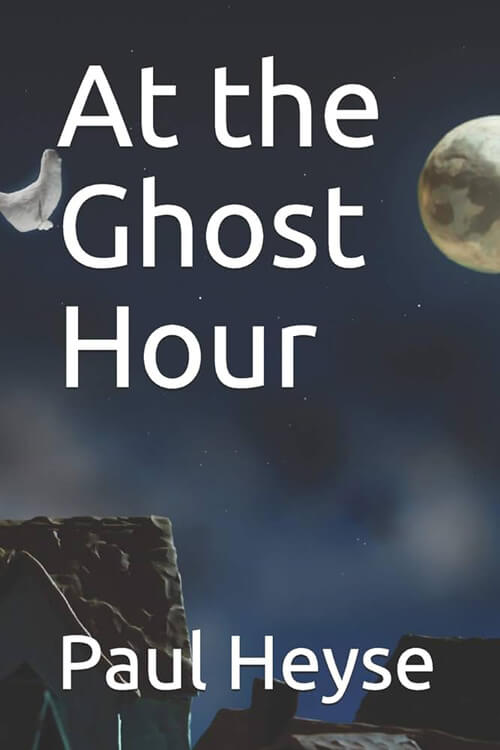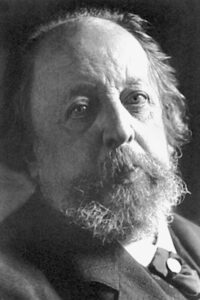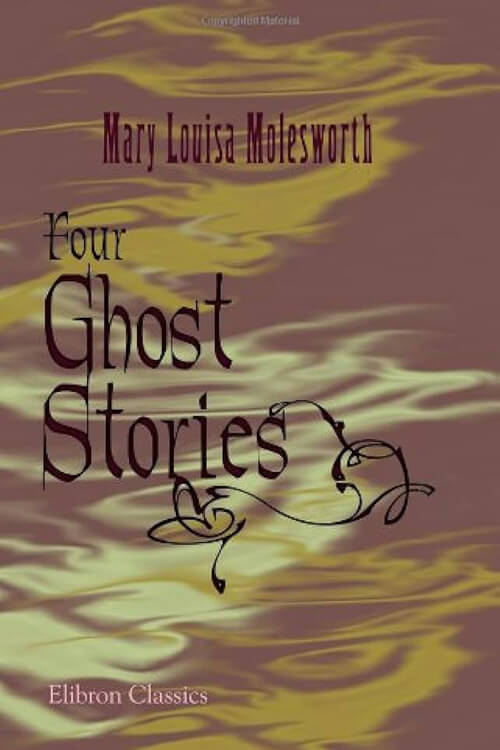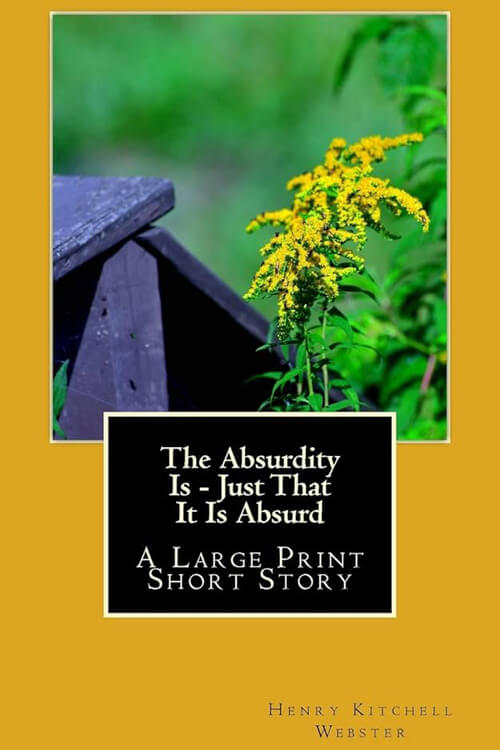
At the Ghost Hour
In a provincial town of northern Germany, there is a street in which the ancient, high-gabled houses bear, inscribed in Gothic letters, upon the lintels of their doors or little sandstone tablets, such honorable or fanciful names as “The Good Shepherd,” “Noah’s Dove,” “The Palms of Peace,” “The Rose of Sharon,” and underneath, the date of their erection.
In former days this street had been one of the main arteries of the city, whose staid, orthodox inhabitants coveted inward spiritual illumination rather than the light and air which penetrated from without. Since then new generations had arisen, fired with the spirit of aggressive enlightenment, and the importance of these old families, content with the stray sunbeams that made their way over the tall roofs, had declined perceptibly. One by one, they had died off behind their “Palms of Peace” and their “Roses of Sharon,” and had made way for the bustling children of the new era, whose light and cheerful dwellings sprang up around the dingy old street.
From one of the houses, which had grown almost black under the storms of three centuries, the street had received its name. skull upon a block of stone above the wide entrance there was cut, in letters so weather-worn as to be scarcely legible, these words: “The Unbelieving Thomas, 1534.” From this, the street had been christened Thomas Lane–a title which it still bears, though, only in official documents and on the map of the city. In common parlance, it had been known for more than fifty years as “Ghosts’ Lane”–again because of that same ancient building which was responsible for its correct name. Everyone knew that the house of “The Unbelieving Thomas” was haunted, and even the most cold-blooded free-thinkers of the town could not escape a slight shiver when business forced them to tread the neglected pavement of this street.
Why this old three-storied structure, so firm despite its great age, had been inhabited all these years only by poor unabsolved souls, no one could tell. With one man who had dared to purchase the house, things had turned out badly enough. A Jew, to whom the great, empty rooms seemed suitable for a warehouse, had been established there less than two years, when one morning he was found with a bit of silk stuff twisted about his neck, hanging from the crosspiece of a window in the largest room. It subsequently became evident that Fortune had turned her back upon this man, once prosperous and well-to-do, and there was nothing for him but to steal out of the world and leave his accumulation of debts behind him.
Read or download Book
Paul Heyse
Paul Johann Ludwig von Heyse (15 March 1830 – 2 April 1914) was a distinguished German writer and translator. A member of two important literary societies, the Tunnel über der Spree in Berlin and Die Krokodile in Munich, he wrote novels, poetry, 177 short stories, and about sixty dramas. The sum of Heyse’s many and varied productions made him a dominant figure among German men of letters. He was awarded the 1910 Nobel Prize in Literature “as a tribute to the consummate artistry, permeated with idealism, which he has demonstrated during his long productive career as a lyric poet, dramatist, novelist and writer of world-renowned short stories.” Wirsen, one of the Nobel judges, said that “Germany has not had a greater literary genius since Goethe.” Heyse is the fifth oldest laureate in literature, after Alice Munro, Jaroslav Seifert, Theodor Mommsen, and Doris Lessing.
Life
Paul Heyse was born on 15 March 1830 in Heiliggeiststraße, Berlin. His father, the distinguished philologist Karl Wilhelm Ludwig Heyse, was a professor at the University of Berlin who had been the tutor of both Wilhelm von Humboldt’s youngest son (during 1815–17) and Felix Mendelssohn (during 1819–27). His paternal grandfather Johann Christian August Heyse (21 April 1764, Nordhausen – 27 July 1829, Magdeburg), was a famous German grammarian and lexicographer. Paul Heyse’s mother was Jewish.
Heyse attended the renamed Friedrich-Wilhelms-Gymnasium until 1847. He was later remembered as a model student. His family connections gained him early entry to the artistic circles of Berlin, where he made the acquaintance of Emanuel Geibel, a man fifteen years his elder who was to become his literary mentor and lifelong friend, and who introduced him to his future father-in-law, the art historian and writer Franz Kugler.
After leaving school Heyse began studying classical philology. He met Jacob Burckhardt, Adolph Menzel, Theodor Fontane, and Theodor Storm, and in 1849 joined the Tunnel über der Spree literary group. Frühlingsanfang 1848, the first of Heyse’s poems to see print, expressed his enthusiasm for the recent Revolution. After a brief excursion to see the student militias, he returned home without joining them, apparently out of consideration for the concerns of his parents and friends.
Having studied for two years at the University of Berlin he left for Bonn in April 1849 to study art history and Romance languages. In 1850, he finally resolved on a career as a writer and began a dissertation under the supervision of Friedrich Diez, a pioneer of Romance philology in Germany; but when it was discovered he was conducting an affair with the wife of one of his professors he was sent back to Berlin. Heyse’s first book, Der Jungbrunnen (a collection of tales and poetry) was published anonymously by his father that same year as was his tragedy Francesca von Rimini. About the same time, Heyse received from the publisher Alexander Duncker a manuscript by the then-unknown Theodor Storm. Heyse’s enthusiastic critique of Sommergeschichten and Lieder laid the foundations of their future friendship.






